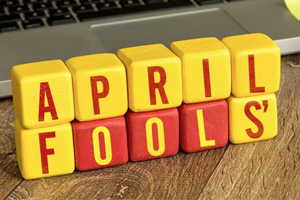 April Fools’ Day is celebrated every 1 April. Practical jokes and spreading hoaxes mark its celebration. This event is also called All Fools’ Day. “April fools” is a term given to the jokes and their victims. As part of the practice, the people playing the April Fool pranks and spreading hoaxes reveal that they are such by shouting “April Fool!”
April Fools’ Day is celebrated every 1 April. Practical jokes and spreading hoaxes mark its celebration. This event is also called All Fools’ Day. “April fools” is a term given to the jokes and their victims. As part of the practice, the people playing the April Fool pranks and spreading hoaxes reveal that they are such by shouting “April Fool!”
Origins and History
Setting aside a day for the playing of harmless pranks on others is practised by many societies around the world throughout history. Considered among the precursors of April Fools’ Day are the Roman Hilaria festival, the Indian Holi festival and the Feast of Fools of the Medieval period.
It started to be practiced widely in the 19th century. However, it is not a public holiday. The first recorded association of 1 April to foolishness can be found in The Canterbury Tales by Geoffrey Chaucer which was originally published in 1392.
In Print Media
To contribute to the fun of the day, newspapers, magazines and other published media include fake stories in the issues they release on the date. They reveal these pranks and hoaxes by explaining it the next day or below the news section in small letters.
In Broadcast Media
Carefully planned and elaborate pranks or practical jokes have been carried out by TV stations, radio stations, newspapers, web sites and large corporations in their offices and locations.
In 1957, a famous prank was pulled out by BBC which was called the Swiss Spaghetti Harvest. In the broadcast network’s current affairs series, Panorama, they aired a film showing Swiss farmers harvesting a crop which they claim is spaghetti. After the broadcast, hundreds of people contacted the BBC because they want to purchase the spaghetti plan. The next day, they revealed that it was an April’s Fool prank through their news program.
 English
English 中文
中文
